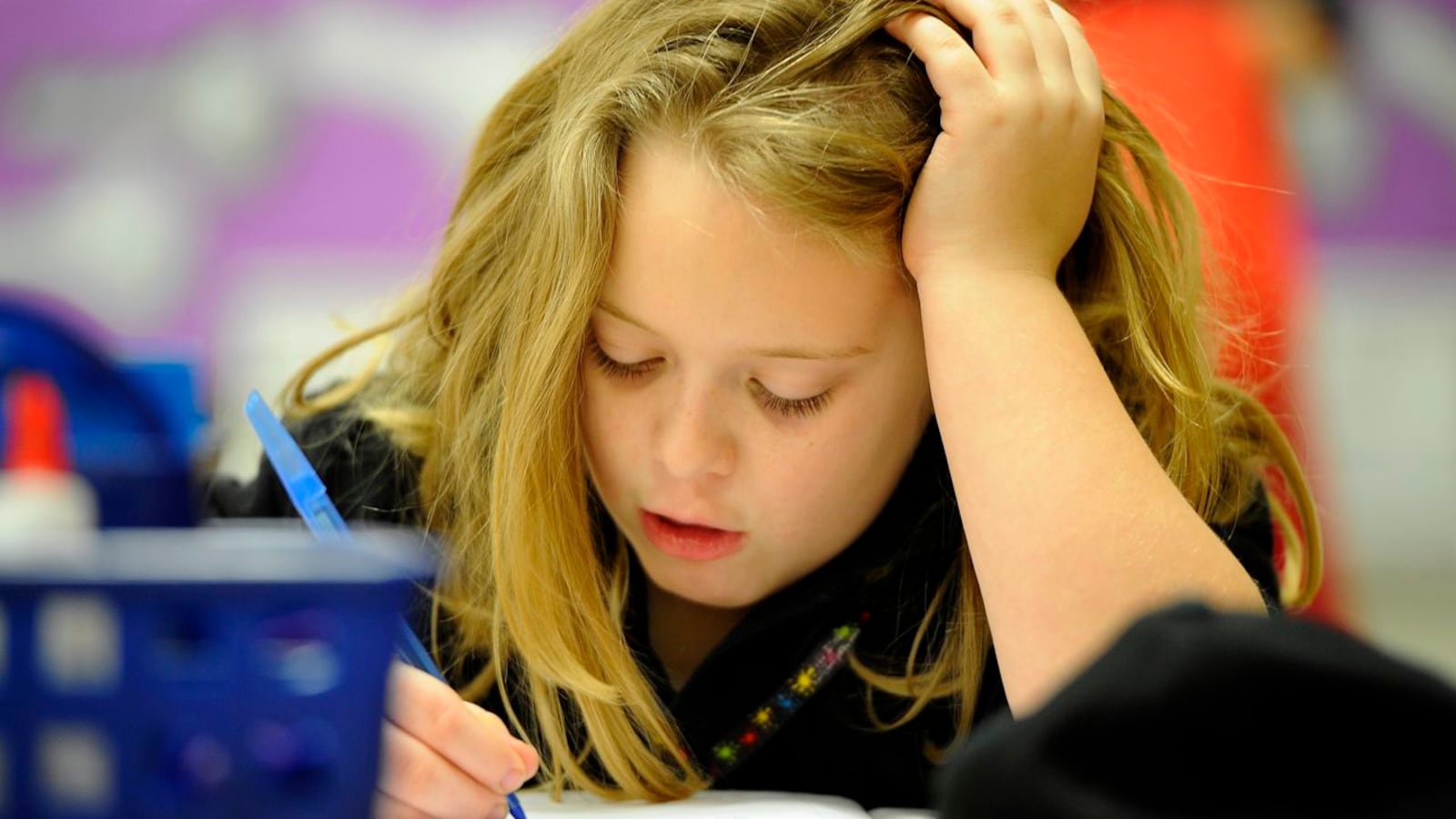More Colorado elementary school students are meeting expectations on the state’s English and math standardized tests, while middle school scores are mostly flat, new data shows.
Colorado’s education department on Thursday released statewide results from this past spring’s PARCC English and math exams, as well as state, district, and school results from the state’s science and social studies tests, the PSAT, and ACT exams.
The scores show that most of Colorado’s students are far from being on grade level, and large disparities still exist between white students and students of color.
But the modest increase in PARCC scores among the state’s youngest students is likely to hearten school leaders who have worked to adapt to new and more rigorous academic standards, and to the new online tests. Officials, though, cautioned the public from drawing conclusions from the data — even as the results will be used to rate schools.
“For trends, we need at least three data points,” said Joyce Zurkowski, the state’s testing czar. Last year was the second that Colorado students took PARCC exams.
In a small victory, officials said their confidence in the results is growing after the number of students opting not to take the tests leveled off. In 2015, Colorado had become an epicenter for the opt-out movement.
PARCC results a mixed bag
This past spring, Colorado participated in the PARCC English and math exams for students in grades three through nine.
Unlike derided bubble tests of old, the online tests developed for Colorado and a collective of other states reward critical thinking and problem-solving on more sophisticated questions. The academic standards the tests are based on are supposed to put students on track for going to college or starting work.
Last year, results showed that most students were not far enough along on that path. This year, third, fourth, and fifth graders made gains in math, and fourth and fifth graders made gains in English.
2016 PARCC English test results
“We’ll be paying close attention to see if that is a trend when we get to the 2016-17 data,” Zurkowski said.
Still, barely one-third of elementary school students are on track in math, and only four out of 10 elementary school students are at grade level, the data shows.
2016 PARCC math test results
And in keeping with historical trends, wide gaps between white students and students of color persist the in results from the math and English tests. In third grade, about 47 percent white students were at grade level, while 23 percent of Latino students and 22 percent of black students met the same mark.
A 23-point gap also occurred on the eighth-grade English test. While 51 percent of white students met or exceeded the state’s expectations, only 27 percent of black and Latino students did.
For older students, math and English scores either remained flat or dropped by about a point. The largest drop — 1.2 percentage points — was on seventh graders’ PARCC math test scores.
Results from eighth and ninth graders’ math tests are complicated. Eighth graders may take one of four tests, while ninth graders may take one of three tests.
Perhaps unsurprisingly, this year’s results show that students in advanced math courses are outperforming their peers. For example, 71 percent of students who took the Algebra II PARCC test cleared the state’s proficiency bar, compared to 32 percent of students who took the Algebra I test.
Scores on this year’s high school math tests are not comparable to last year’s scores, because 10th and 11th graders were allowed to take those tests in 2015. This year, only eighth and ninth graders were allowed.
Colorado kids struggling with science, social studies
Only about one-third of students met the state’s expectations on its science test, known as CMAS, which is taken in fifth, eighth, and 11th grades.
Scores were essentially flat for fifth and eighth graders. This is the first year of results for the 11th grade test.
The picture is bleaker for civics. Only 24 percent of Colorado fourth graders and 18 percent of seventh graders met the proficiency mark on the state’s social studies test, which was administered for the first time this year to a sample group of students. About one-third of schools participated.
Graphics by Sarah Glen.


